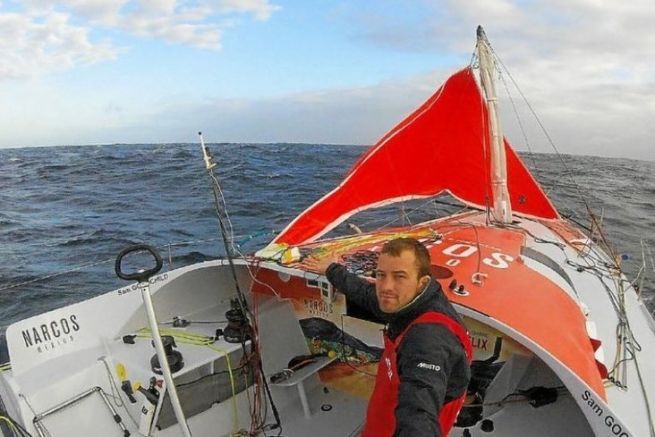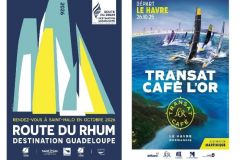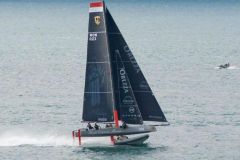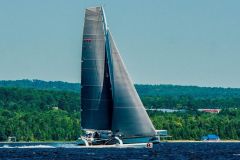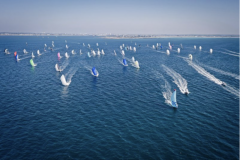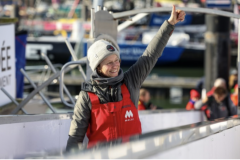Christophe Pirlot works with his family in the office of his father René Pirlot, which opened more than 25 years ago. It was with the help of some of the big names in ocean racing that he created Tolrip. Gaétan Gouerou (former secretary of the IMOCA) and the sailor Catherine Chabaud have actively participated in the genesis of his company.
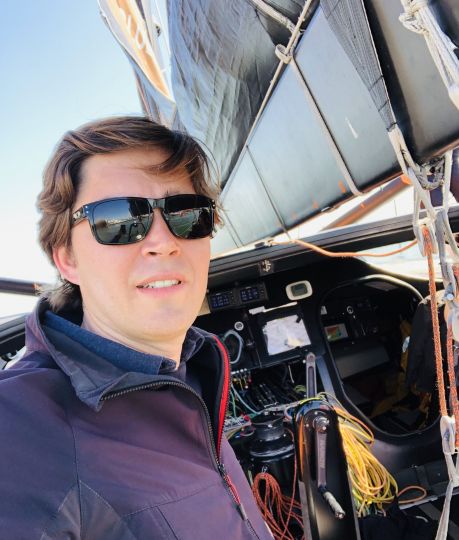
Insurance broker to prevent risks
When asked to define Tolrip's business, Christophe explains " We are not just insurance brokers building relationships between teams in need of protection and insurers in need of clients. We work upstream to understand each team's expectations, limits and actual requirements and downstream with insurance, co-insurance or reinsurance professionals. I prefer the term "risk manager" to "broker". It is our real job to prevent risk. "
Insuring an IMOCA, how much does it cost?
If it is very complex to project oneself into something, it is certainly in the amount of the premiums of a racing yacht: " Of course, there is no standard rate. The calculation of the premium is a complex equation."
This equation depends on many criteria:
- the value of the vessel
- the team
- the skills and background of the skipper
- class statistics
- the insurer's interest in the practice
- possible commercial arrangements such as image placement
- the shipowner
- the financing needs of insurers.
For it should not be forgotten that insurers are merchants who commit themselves to risks that they must be able to cover in the event of a claim. This is a very clear position taken by Christophe Pirlot Our insurance partners are only companies that have the financial base to finance their commitments. And none of the ships in the race are underwritten by a single company. The arrangements systematically include several of the largest companies in the sector, most of them British or German. Indeed, no French insurer wants to cover ocean racing any more. "
The premium itself, therefore, depends on all these factors, but at the bottom of the page has a real cost. Christophe Pirlot explains " premiums are annual, companies refuse to insure on a piecemeal basis, which would prevent them from globalizing risks over a season, during which there are inevitably moments that are more risky than others. "
Globally, the insurance premium for a racing yacht, participating in particular in the Vendée Globe, represents 5 to 20% of the market value of the boat. Knowing that the boats entered in the race are worth between 300,000 euros and 5,000,000 euros, the premiums vary between 15,000 euros and 1,000,000 euros depending on the situation.
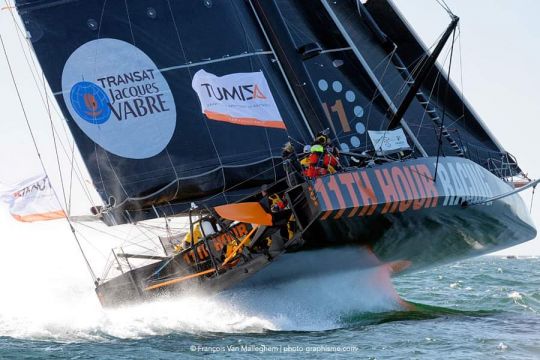
Optional Vessel Insurance
Insurance is a major item in the teams' budgets. So much so that some teams choose (or are forced) to insure only the third party. For the Vendée Globe, the organisation requires at least 3,000,000 euros of damage to be covered by liability insurance. This is the only compulsory insurance for the race.
These rates may seem prohibitive, of course, but are amply justified according to our broker " Offshore racing is an extremely risky niche, whether in terms of the financial impact of claims or the image of the insurer, who may be called upon to manage the recovery of a wreck, the search for a body, any pollution that may be generated or anything else that the imagination can produce as a loss at sea. Secondly, the covid crisis has impacted and is still impacting the financial capacities of insurers who are now reluctant to insure increased risks such as ocean racing"
Bonus for righteous teams
Like what is done in the field of cars for private individuals, Christophe Pirlot explains to us " Some companies practice a bonus policy with virtuous teams. Thus, if this or that team has not declared a claim for a year, it will pay part of the fleet insurance premium, a saving that can be counted in thousands or tens of thousands of euros sometimes. "No harm done, however, to the unlucky fleet. Likewise, teams that embark Oscar-type aircraft to limit collisions with UFOs can also benefit from a reduction in premiums.
Good accident statistics of the IMOCA class
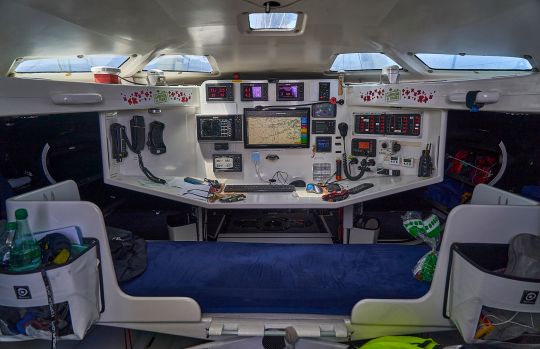
The technological evolution of boats, which are faster and faster, increases the potential for losses tenfold, collisions with UFOs are a daily reality in major ocean races. All this comes at a price, and the few companies able to insure this type of event reduces competition. However, he weighs " The statistics for the IMOCA class are good, very good even. There haven't been any major disasters in recent editions, particularly since the arrival of one-design masts and keels on all the boats, reducing the arms race on these sensitive parts of the boats. "
A before and after Route du Rhum 2002
Things keep changing in the insurance of ocean racing: " There was a before and after Route du Rhum 2002 and its wave of breakages and retirements. Certain companies such as Groupama withdrew from the market, whilst others began to call upon risk management and prevention. That's the real value we offer teams. If we refuse to intervene at the class level, it is to better work on the trinomial that defines the job of risk manager: risk identification, risk prevention, risk transfer. We call on experts in their fields (electronics, electricity, sailmaking, structure, materials, etc.) for the first two elements, experts who will make observations before and after the tests and issue recommendations to the teams. It is on the strength of these observations and recommendations that we transfer the risk to insurers, who receive from us files that are supplied, healthy and secure. "
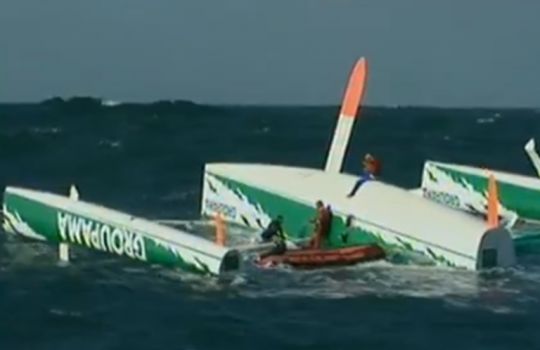
Something that Christophe Pirlot certainly reminds us of." In ocean sailing as in motoring, insurance is expensive as long as no loss occurs. Finding a ship in the middle of the Indian Ocean is a huge cost for the insurer who is a merchant. He has to cover the financial impact with his policyholders' premiums. The insurance market represents a finite market in terms of the number of insurable units, whether it is the domestic market or the professional market. Premium increases are therefore the necessary evil for insurers to continue to practice their trade, to allow those who dare to dare. "
